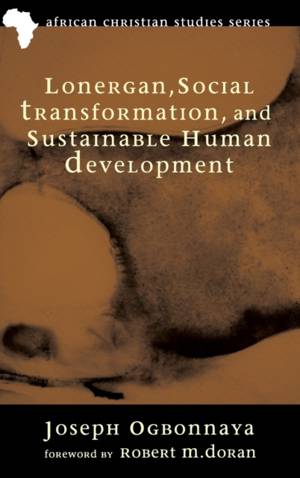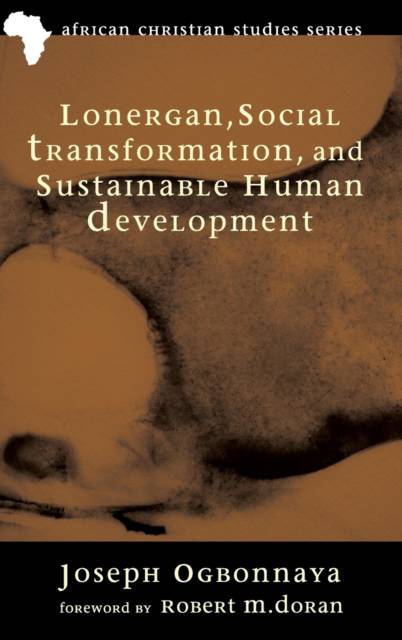
Bedankt voor het vertrouwen het afgelopen jaar! Om jou te bedanken bieden we GRATIS verzending (in België) aan op alles gedurende de hele maand januari.
- Afhalen na 1 uur in een winkel met voorraad
- In januari gratis thuislevering in België
- Ruim aanbod met 7 miljoen producten
Bedankt voor het vertrouwen het afgelopen jaar! Om jou te bedanken bieden we GRATIS verzending (in België) aan op alles gedurende de hele maand januari.
- Afhalen na 1 uur in een winkel met voorraad
- In januari gratis thuislevering in België
- Ruim aanbod met 7 miljoen producten
Zoeken
Lonergan, Social Transformation, and Sustainable Human Development
Joseph Ogbonnaya
€ 63,95
+ 127 punten
Uitvoering
Omschrijving
Secular contemporary development discourse deals with the problems of societal development and transformation by prioritizing the human good in terms of vital and social values with the aim of providing the basic necessities of life through social institutions that work. While such an approach is profitable by promoting economic growth, it does not take note of other dynamics of social progress and development. Also, it fails to notice the consequences of development strategies on human flourishing, well-being, and happiness. Ogbonnayu argues for an integral approach to development by engaging in a fruitful dialogue between Bernard Lonergan's philosophical anthropology with contemporary development discourse, as represented in select theories of development, and in select principles of Catholic social teaching. It makes a case for social progress and transformation as emanating from human understanding. Also, it highlights the parts of Lonergan's theory that contribute to an understanding, specifically of his treatment of bias, and of the shorter and longer cycles of societal decline. In view of the reality of moral impotence and limitations, it considers the reversal of societal decline as possible through the supernatural solution of God's grace.
Specificaties
Betrokkenen
- Auteur(s):
- Uitgeverij:
Inhoud
- Aantal bladzijden:
- 202
- Taal:
- Engels
- Reeks:
- Reeksnummer:
- nr. 4
Eigenschappen
- Productcode (EAN):
- 9781498262637
- Verschijningsdatum:
- 29/01/2013
- Uitvoering:
- Hardcover
- Formaat:
- Genaaid
- Afmetingen:
- 152 mm x 229 mm
- Gewicht:
- 444 g

Alleen bij Standaard Boekhandel
+ 127 punten op je klantenkaart van Standaard Boekhandel
Beoordelingen
We publiceren alleen reviews die voldoen aan de voorwaarden voor reviews. Bekijk onze voorwaarden voor reviews.









